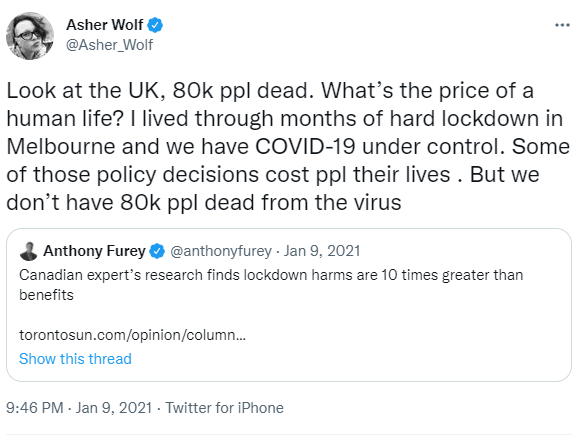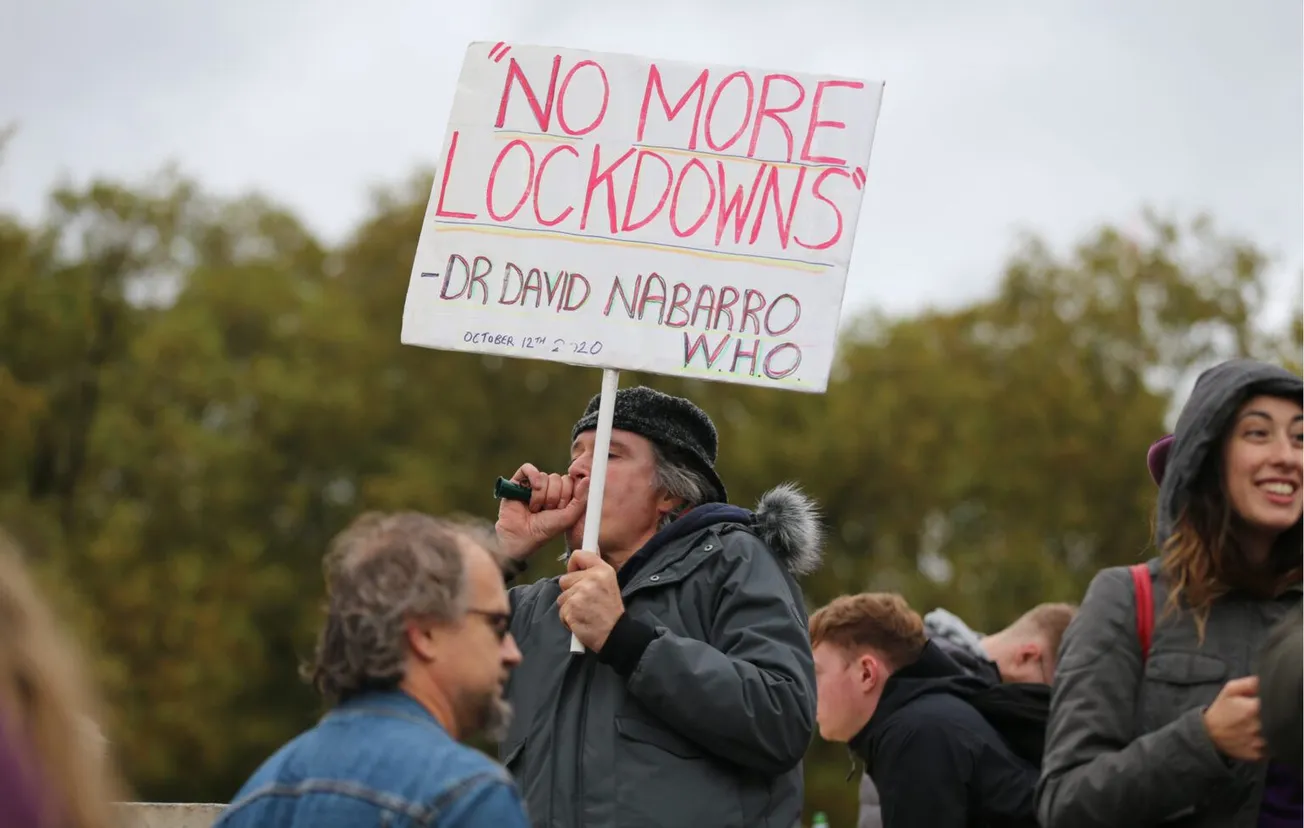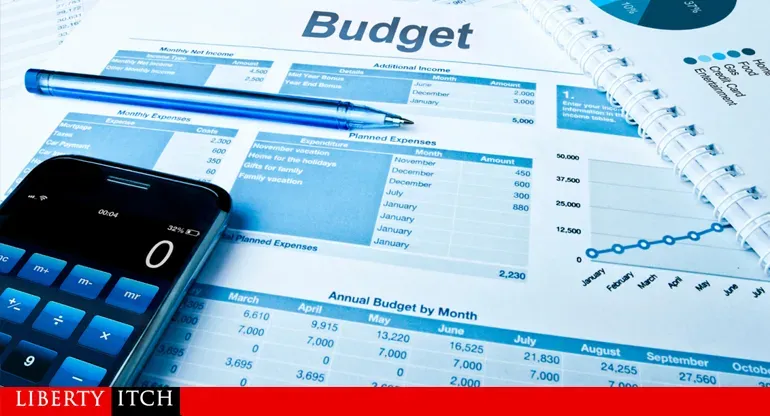Table of Contents
Michael Senger
brownstone.org
Michael P Senger is an attorney based in the United States. He has been researching the influence of the Chinese Communist Party on the world’s response to COVID-19 since March 2020, and previously authored China’s Global Lockdown Propaganda Campaign and The Masked Ball of Cowardice in Tablet Magazine.
In Shanghai, China, millions of residents have been locked in their homes for weeks. Those who test positive for Covid are taken to detention camps and their pets are killed. Many face starvation, and there have been countless suicides. Despite all this—as is the case in every country that implemented them—these inhuman policies have failed to stop the virus.
This gruesome spectacle has been taken in with horror by international onlookers. Many who once supported lockdowns have gone silent. Indeed, these scenes are the logical conclusion of the Zero Covid cause and serve as a grim reminder of the dystopia that could have been our own had they gotten their way.
Who gave life to this deadly ideology which culminated in such catastrophe? Below is a sample of 101 individuals and institutions with significant, public-facing credentials who advocated for “real” lockdowns—harder, longer, or earlier than those imposed across the world in March 2020—to control Covid.
As many have noted, journalists and health professionals are overrepresented in this group. Most lean to the political left. Even more telling is that, of all 101 individuals, not a single one appears to have been financially affected by the lockdowns they were advocating. Below is a telling example:

This indicates that many were aware lockdowns caused significant harm to others—even lethal harm—but were reassured by the fact that those harms did not affect them, personally. Many justified a “real” lockdown as being necessary to prevent further lockdowns. Presumably, this means that some may have stopped supporting lockdowns after seeing they’d failed. That said, all appear to live in states and countries that implemented strict lockdowns in March 2020, and that did not stop them from advocating stricter lockdowns, indicating that some may have advocated even stricter lockdowns in a “no true Scotsman” loop.
Lockdown had no history in the western world prior to Xi Jinping’s lockdown of Wuhan, China, and was not part of any western pandemic plan, but it’s unclear, in most cases, whether those in this sample were thinking of China when advocating for “real” lockdowns. Lockdown was a social phenomenon, and many likely promoted lockdown simply because they saw their peers promoting lockdown. Those who opposed lockdowns were often vilified and censored by powerful institutions; this may have led to an association of support for lockdowns with power, leading many to believe they need not examine the policy prior to advocating it.
To be sure, this is a very tiny sample of those who promoted lockdowns on social media. Additionally, for every person who publicly advocated lockdowns, countless others quietly acquiesced while playing no role in the debate.
Tragically, these silent enablers included the leaders of our society’s highest governing bodies who, each in their own way, could have stopped the entire lockdown catastrophe; this stand-down by the stewards of our most revered institutions gave a veneer of legitimacy to the broad implementation of a Xi Jinping policy across the free world.
Nonetheless, all the individuals in this sample publicly advocated policies that caused substantial harm to others in pursuit of a goal that—as Shanghai has so tragically demonstrated—was doomed ab initio. The PDF attachment screenshots their tweets and comments.
- Devi Sridhar, Public Health Professor
- Tom Frieden, Former CDC Director
- Jerome Adams, Former Surgeon General
- Bill Gates, Software developer
- Anthony Fauci, NIH Director
- Rochelle Walensky, CDC Director
- Eric Feigl-Ding
- Michael Osterholm, Infectious Disease Professor
- Ian Mackay, Virologist
- Angela Rasmussen, Virologist
- Ellie Murray, Epidemiology Professor
- Lisa Iannattone, Dermatology Professor
- David Fisman, Public Health Professor
- Irfan Dhalla, Medical Professor
- Christina Pagel, Operational Research Professor
- Zoë Hyde, Epidemiologist
- Isaac Bogoch, Infectious Disease Physician
- Tomás Ryan, Neuroscientist
- Susan Michie, Health Psychology Professor
- Bruce Arthur, Toronto Star Columnist
- Yaneer Bar-Yam, Physicist
- Mike Gibbs, Ontario Ministry of Health
- Deepti Gurdasani, Epidemiologist
- Brian Goldman, ER MD
- The New York Times Editorial Board
- Jacobin Magazine
- John Ross, China lobbyist
- Chen Weihua, China Daily EU Bureau Chief
- James Palmer, Foreign Policy Magazine Deputy Director
- Peter Daou, Democratic Campaign Strategist
- Erica Joy, CTO at Democratic Congressional Campaign Committee
- Dr. Oz
- Jason Silverstein, Medical Professor
- Yoni Freedhoff, Medical Professor
- Zubaida Haque, Equality Trust Director
- Daniel Andrews, Premier of Victoria, Australia
- Kevin Rudd, Former Prime Minister of Australia
- Diane Abbott, MP
- Timm Bruch, CTV Reporter
- Shafi Ahmed, Medical Professor
- Abe Oudshoorn, Nursing Professor
- Ananyo Bhattacharya, Science Writer
- Bloomberg Opinion
- Brendan Crabb, Microbiologist
- Luke Bailey, iPaper Editor
- Paul Bongiorno, Saturday Paper Columnist
- Dirk Devroey, Medical Professor
- Emily Deans, Psychiatrist
- Ximena González, Freelance WriterOmar Ghraieb, Oxfam Policy and Campaigns Officer
- Zoe Daniel, Australian Politician
- Diederik Gommers, Chairman of the Dutch association for ICU doctors
- Jay Beecher, Investigative Journalist
- Femi Oluwole, Writer at The Independent
- Jennifer Gunter, OB/GYN
- Cheri DiNovo, Canadian Politician
- Malgorzata Gasperowicz, Developmental Biologist
- Andrew Gaffney, Sports Writer
- Andreas Eenfeldt, CEO at Diet Doctor
- Quentin Dempster, Journalist
- Simon Houpt, Writer at Globe and Mail
- Issa López, Film Director
- Rhys Jones, Public Health Doctor
- Emmett Macfarlane, Political Science Professor
- Bartley Kives, CBC Reporter
- Jane Merrick, iPaper Policy Editor
- Virginia Heffernan, Wired Columnist
- Brian Klaas, Global Politics Professor
- Andrea Horwath, Canadian Politician
- Judy Melinek, Forensic Pathologist
- Chico Harlan, Washington Post Bureau Chief
- Julien Mercille, Geography and Environment Policy Professor
- Paul Mason, Journalist
- Margaret Morgan, Filmmaker
- Mary-Margaret McMahon, UK Politician
- Steven Newman, Floriculture Professor
- Don Moynihan, Public Policy Professor
- Neel Kashkari, President at Minneapolis Federal Reserve
- Kai Kupferschmidt, Science Journalist
- Shannon Palus, Editor at Slate
- Umbereen S Nehal, Founder at Nehal Group LLC
- Jonathan S Perkins, UCLA Director of Race and Equity
- Tyler Watt, Public Health Nurse
- Tony Blakely, Epidemiologist at Melbourne University
- Alfons López Tena, Spanish Politician
- Tara C Smith, Infectious Disease Professor
- André Picard, Globe and Mail Health Journalist
- Ishaan Tharoor, Washington Post Columnist
- Michael Schull, Medical Professor
- Stefanie Leder, TV Writer/Producer
- Diana Z Berrent, Founder at Survivor Corp
- Asa Winstanley, Investigative Journalist
- Jeff Sharlet, Author
- Bell Ribeiro-Addy, UK Politician
- Claudia Webbe, UK Politician
- Bruce Hawker, Political Commentator
- Alheli Picazo, Freelance Writer
- Charlie Stross, Author
- George Aylett, UK Politician
- Jeremy Farrar, Director of the Wellcome Trust
- Brianna Wu, Executive Director at Rebellion PAC
- The Nation
No-True-Scotsman-Lockdown-as-social-and-political-phenomenonDownload









